With apologies for the short break in the policy updates, we are back! Thanks to those of you who were missing our updates and reached out to us. We were just a bit busy. We hope you enjoy this summary – of course the national political situation may change but the HE policy wagon rumbles on, with very little change. The money situation is getting worse, association to Horizon looks less and less likely and there is a continuation of anti-HE rhetoric (different people, same record). We don’t even get our own Minister in the Truss government (Andrea Jenkyns is Minister for Skills, which includes HE).
We were not expecting a major shift in policy for HE, regardless of who won the Tory leadership election, and the same is probably still true now, although of course the financial pressures on the government would suggest that as well as tuition fees staying frozen and little movement on maintenance or hardship support for students, research funding will also be under pressure.
Outstanding government policy decisions include:
Parliamentary News
As we write Liz Truss is still PM and Jeremy Hunt is Chancellor. Kit Malthouse is Education Minister. Jacob Rees-Mogg is Secretary of State for Business, Energy and Industrial Strategy. After the PM’s appointment the reshuffle took rather a long time, interrupted of course by the period of national mourning, and then it took even longer to confirm the portfolios of some of the unaligned junior ministerial appointments. Some of these responsibilities and titles are different from what went before.
Andrea Jenkyns replaced Michelle Donelan (who is now in DCMS having taken over from Nadine Dorries) but there is some subtlety implied by the changes to the job title. Michelle was Minister for Higher and Further Education. Andrea is Minister for Skills with a remit as follows:
- strategy for post-16 education
- T Levels
- qualifications reviews (levels 3 and below)
- higher technical education (levels 4 and 5)
- apprenticeships and traineeships
- funding for education and training for 16 to 19 year olds
- further education workforce and funding
- Institutes of Technology
- local skills improvement plans and Local Skills Improvement Fund
- adult education, including basic skills, the National Skills Fund and the UK Shared Prosperity Fund
- higher education quality
- student experience and widening participation in higher education
- student finance and the Lifelong Loan Entitlement (including the Student Loans Company)
- international education strategy and the Turing Scheme
Minister for Science and Investment: Nusrat Ghani has been appointed as the Minister of State for Science and Investment Security within BEIS. Nusrat’s responsibilities are:
- science and research (domestic and international)
- Horizon Europe membership (or perhaps we should say Plan B arrangements)
- innovation strategy / science superpower
- critical minerals and critical mineral supply chains
- maritime and shipbuilding
- life sciences (including vaccine production)
- space strategy (excluding OneWeb)
- technology, strategy and security
- artificial intelligence (including the Office for AI)
- fusion
- R&D people and culture strategy
- research approvals
Supporting the Secretary of State on:
- investment security
- investment pipeline and opportunities
- UK Research and Innovation (UKRI)
- Advanced Research and Invention Agency (ARIA)
Wonkhe have a blog on Nusrat and what we might expect. Here’s a snippet:
- If you’ve not yet spotted anything else in Nusrat Ghani’s background to suggest any previous interest in science it is unlikely that you are alone. Her discussions of science and research in the House of Commons have been limited to support for businesses in her constituency, and – as we shall see – lockdown scepticism. She was a senior fellow at Policy Exchange, but focused largely on her former transport role and her work on extremism.
- Fundamentally, there are ministers appointed for their domain expertise and ministers appointed for their loyalty to the party – it is hard not to see Nusrat Ghani as an example of the latter… it is a little bit of a worry.
Jackie Doyle-Price has been appointed as the Minister for Industry. Jackie’s responsibilities as Minister for Industry include advanced manufacturing, infrastructure and materials, industrial decarbonisation, professional and business services, retail and consumer goods, economic shocks, supply chains, levelling up / regional growth and skills
Nus Ghani had her first outing as sciences minister when she was questioned by the Commons Science and Technology Committee on the government’s R&D policy this week.
- The Minister re-committed to the current spending allocations of £22bn for R&D.
- The Minister also said the Nurse Review would report in the Autumn, with civil servants adding that Nurse had spent the summer engaging with stakeholders, and that the report was in the refinement stages.
The Committee sessions also examined the usefulness of R&D tax credits in promoting growth for the UK economy and heard how Horizon Europe negotiations were impacting the academic and business research sectors.
Local MPs
- Local MP Michael Tomlinson has been appointed as Solicitor General. This means he will be supporting the Attorney General. The Attorney and Solicitor General provide legal advice to government, and answer questions about their work in Parliament. They do not provide legal advice to members of the public or businesses. One area which often receives publicity is the area of unduly lenient sentences. This is where people feel that a criminal has received a sentence that is too low for their crime. The Solicitor General or Attorney General will examine the case, and may refer it back to the Court of Appeal for review. Michael was sworn in as HM Solicitor General for England and Wales on 29th September and will be subsequently appointed King’s Counsel (KC).
- Local MP Conor Burns (Bournemouth West) has lost the Conservative Party whip following controversy at the Conservative Party conference. Conor now sits as an independent MP and no longer holds his ministerial position as Minister of State for Trade Policy (Greg Hands MP was appointed to the trade role).
- Local MP Tobias Ellwood (Bournemouth East) had the Conservative Party whip removed when he missed the Parliamentary vote of confidence in Boris Johnson in July 2022 because he was overseas. Johnson won the vote, although of course he later resigned. Tobias has now been reinstated (14th October 2022).
Research
They’re at it again (R&D targets)
Remember when the way the debt associated with the student loan book was reclassified within Government’s accounts? While the methodology of the amount being spent didn’t change it made the student loan figures look like an astronomical outlay and Ministers have been vocal about how university isn’t for everyone (and there are other routes instead) ever since. Well they’ve done it again. A reclassification in how the R&D spend is calculated has led to the Government meeting their original target overnight. Wonkhe explain the change here. The short version is the way the Office for National Statistics account for tax credits and the underreporting of small firms involvement in R&D has resulted in an uplift or scaling up of the estimates but in ‘now’ time rather than retrospectively accounting for their R&D further down the road.
Did I lose you at tax credits? If so Wonkhe put it simply:
- Meeting the 2.4 per cent target because we are now measuring it better doesn’t feel like a win: it feels like the target was wrong. That’s no-one’s fault. But we should now revise the target to keep it stretching. The poor productivity performance of the UK remains, and measuring R&D differently doesn’t change that. So we still need to aim for higher R&D spending (and investment in general).
The new approach is not without its critics (the Wonkhe article was written by Josh Martin, an economic advisor at the Bank of England and on secondment from the UK Office for National Statistics) so we can expect further methodological tweaks over time, not least because there are concerns about tax fraud within the new definition. On the surface the ‘achievement’ of the target is a win for Government who will already be thinking about how their performance will reflect on them for the next general election.
Levelling Up
When Theresa May gave way to Boris Johnson as PM the focus on the Industrial Strategy morphed into Boris’ levelling up agenda. Now, with Liz Truss at the helm, the constant burble is whether levelling up will remain or slide into obscurity. Of course, these labels are only the coat hooks on which the Government hangs their plans to tackle the same underlying problems within the country, but they are more than just labels they determine the focus of funding to tackle these problems. With this in mind there’s a new Wonkhe blog that is of interest: Engaging with a Truss government on research – The Johnson-era arguments around “levelling up” are now uncertain. James Coe asks how we make the case for research to the current crop of Conservatives. Here’s a snippet:
- Essentially, the task for universities will be to demonstrate that their work drives economic growth aside from the distributional benefits of doing so. This is particularly important when there are suggestions that research funding could be subject to spending cuts. This would hamper growth, but the government know this. It is a political calculation that as research is not widely understood it will attract less public backlash if cut.
- So, to make the case for research as an engine of growth. The central concern of universities in this era should be on promoting the importance of research as an economic good which needs properly funding as it faces dual threats of public funding cuts, and a home secretary who has expressed scepticism about some international students. For example, in the clamour to demonstrate the levelling up benefits of research there has been less discussion of core research funding. The R&D Roadmap committed to exploring the possibility of full economic cost of research but there has been little progress or pressure on this front.
- Any pivot should be about the continual explanation of how research touches the real economy. Research is of course about the breakthroughs but it is also the relentless pursuit of the brilliantly banal. It’s the partnerships with business which bring efficiencies, the marketers, advertisers, and illustrators, and its engineers, chemists, and all those whose work is at the face of business. It’s the parts which might never make the front of a prospectus but make the economy tick over. It’s difficult to expect government to intuitively understand how research is an economic good unless it’s made tangible.
You can read more here. Be sure to read the readers’ comments to the article!
Horizon Europe/Plan B
HEPI (the Higher Education Policy Institute) published a new policy note on the Horizon Europe program and proposed Plan B alternative. The report states that full association with Horizon Europe remains preferable but provides a checklist for making Plan B work, including:
- incentivising the participation of less well-resourced UK universities in European research and innovation, for example through staff exchange schemes;
- allowing greater freedom for individual researchers to devise their own research topics;
- co-funding schemes between the UK Government and the private sector for applied research projects;
- minimising bureaucracy with short and simple applications; and
- guaranteeing EU-based entities’ eligibility for UK funding, at least in specific areas, to help pave the way for regaining full association.
You can read the full recommendations here.
Quick Research News
- You can read oral research and development parliamentary questions here.
- Greg Clark has been elected uncontested to the position of chair of the Commons Science and Technology Committee, for the second time. Earlier in his career Greg was the Secretary of State for BEIS and most recently the Secretary of State for Levelling Up, Housing and Communities (from July 2022).
- The Government has confirmed it will establish a “new” National Science and Technology Council, based in the Cabinet Office, with the Chancellor in the chair. Chancellor of the Duchy of Lancaster, Nadhim Zahawi, will serve as deputy chair. The NSTC will “double down its efforts to create a UK science and technology system that will be a sustained engine for future economic growth, prosperity and security.” It will “deliver a plan to harness science and technology to support economic growth and the UK’s position on the geopolitical stage, sending a clear signal to the sector about the government’s priorities in this area.” You may recall that the previous NSTC was dissolved only a few weeks ago, however, lobbying from the sector led Truss to sanction the establishment of a ‘new’ NSTC. The dissolution of the original NSTC (which was one of Boris’ babies and only ever convened three times) was seen by some as a clear message that the UK as a Science Superpower wasn’t high on Liz’s agenda. Although the official line was that the Truss administration was keen to reduce the number of PM-chair subcommittees. Here is THE’s coverage of the story: Science friction.
- The AI Standards Hub, led by the Alan Turing Institute, launched a bid to facilitate collaboration and improve how AI is used across the economy in sectors such as healthcare, transport and finance. The Hub will work to ensure that industry, regulatory, civil society and academic researchers are equipped with the tools and knowledge necessary to contribute to the development of standards and so they can make informed use of published standards.
- HEPI have published a collection of pieces from 12 authors covering The past, present and future of research assessment
- Just a blip: China’s retreat from international collaboration in scientific research will prove to be temporary, according to the head of one of the country’s largest funders. (THE)
- Over in America – Helping hand: The Biden administration is expanding its push to help less-competitive institutions share in federal research funding, opening an office to help guide their students and scientists through its grant application processes. (THE)
Parliamentary Question – EU Grants & Loans (unable to take up)
- Q – Chi Onwurah: …the number of UK-based scientists who have been informed by the European Research Council that their grant can no longer be taken up in the UK, since 1 January 2022, (b) the number of such grantees who have decided to re-locate, and (c) the total value of European Research Council grants awarded to UK-based scientists since January 2022 that can no longer be taken up in the UK.
- A – Nusrat Ghani: The Government launched the UK Horizon Europe guarantee in November 2021 to make sure successful UK applicants to Horizon Europe, including ERC winners, can access funding from UKRI, instead of the EU. The guarantee is working as planned and take up is strong.
According to the EU’s publicly available data, 132 UK-based researchers have won awards from the ERC 2021 calls. The EU does not make information public on additional awards for UK applicants who are promoted from the reserve list. As of 30/09, 152 grant offer letters with a value of £235m have been issued by UKRI to UK ERC winners and the promoted reserve list. The application window remains open for any outstanding winners to apply. Everyone taking up the guarantee will carry out their research in the UK as planned. There is no information available on whether UK winners choose to relocate in order to access ERC or other available funding globally.
Labour policy on education
In case you are wondering what might happen if there were to be a general election and a change of government, we remind you that the latest date for an election is January 2025. Labour have been a bit reticent on detailed policy ahead of a manifesto process but here are some hints:
- Labour announces landmark shift in skills to drive growth and equip our country for the future:
- Turn the Tories’ failed Apprenticeships Levy into a ‘Growth and Skills Levy’ enabling firms to spend up to 50% of their levy contributions, including current underspend, on non-apprenticeship training – including modular courses and functional skills courses to tackle key skills gaps. By reserving 50% of the Growth and Skills Levy for apprenticeships, we will protect existing apprenticeship provision
- Better align skills policy with regional economic policy and local labour markets by devolving combining and various adult education skills funding streams to current and future combined authorities
- Establish a new expert body, Skills England, to oversee the national effort to meet the skills needs of the coming decade across all regions, and ensure we can deliver our Climate Investment Pledge.
- Labour ‘very close’ to unveiling ‘sustainable’ HE funding plan – THE “There has been speculation that Labour will opt for a graduate tax – and Mr Western’s comments seemed to leave the door open to that policy.”
- Higher education policymaking in Opposition: What should Labour do now? HEPI blog by Nick Hillman
Students
Student Loans & withdrawals
The latest student loan spend is that £2.6 billion had been paid to UK students at the end of September. More details here.
The Student Loans Company has published new figures showing a 23% increase in the number of students withdrawing from university courses, NUS Vice President Higher Education, Chloe Field, said: These figures are shocking, but not surprising given the cost of living crisis which is pushing students to the brink. We’ve warned that student dropouts could increase as university becomes less affordable, and it could get even worse this year.
Cost of Living MillionPlus released new analysis on the impact of the cost-of-living crisis on HE students.
- The analysis of the 2022 Student Academic Experience Survey identifies the more than 300,000 undergraduates that will be hardest hit financially in the coming academic year.
- These students are more likely to belong to groups traditionally underrepresented in higher education. Black and mature students are the two groups most at-risk of immediate financial hardship.
- Additionally, students from lower socio-economic backgrounds, those from areas with lower rates of participation in higher education and students who live-at-home or commute to campus are also more likely to be at-risk.
- Given the close links between thoughts of quitting, mental health problems and financial difficulties, universities face significant rates of attrition in the coming months. This places successful widening participation policies at significant risk.
MillionPlus calls on the Government for increased maintenance funding for students (ideally grants not loans), the better inclusion of students in the wider cost of living assistance programmes announced in September 2022 and ensuring energy discount payments are passed on to student tenants where fixed energy costs are included in rental charges. In their recommendations to the OfS they ask for an immediate increase in hardship funds for universities to target at students most at need.
Mental Health The OfS also published mental health reports:
Here are the key points from the Mental Health Challenge Competition (MHCC) evaluation:
The MHCC sought to deliver a ‘step change in mental health outcomes for all students’. The evaluation states that the programme achieved this in three key areas:
- It led to strengthened strategic partnerships between universities, colleges and local partners and NHS services
- Services for students became better connected and more accessible
- There was an improved range of preventative and proactive mental health support available to students.
The report sets out a series of recommendations for the sector and regulator including co-creating mental health initiatives with students:
Next steps for the Sector:
- Work around student transitions from FE to HE would benefit from a national approach to avoid a ‘postcode’ lottery emerging.
- Greater collaboration between HE providers is encouraged – to maximise opportunities for shared learning.
- The MHCC piloted several new models of student support that go beyond traditional university counselling services. Providers are urged to explore these approaches and adopt models which may help to address challenges faced within their own setting.
- Further work is needed still to drive forward early intervention. We encourage the sector to continue to develop and test innovative approaches that support preventative efforts in student mental health.
Standards and excellence
Minimum Student Outcomes The OfS announced the latest student outcome minimum expectations. The new thresholds tackle continuation, completion, and post-graduate destinations.
For full-time students studying for a first degree, the thresholds are for:
- 80% of students to continue their studies
- 75% of students to complete their course
- 60% of students to go on to further study, professional work, or other positive outcomes, within 15 months of graduating.
Different thresholds have been set for courses depending on their mode and level of study, which take into account the differences in outcomes for students who study full- and part-time, and those on undergraduate and postgraduate courses. The OfS have stated they will also consider performance in individual subjects, to ensure pockets of poor performance can be identified and addressed.
Institutions performing below these thresholds would face investigation and if performance is not adequately explained by a provider’s context, the OfS has the power to intervene and impose sanctions for a breach of its conditions of registration.
Susan Lapworth, Chief Executive of the OfS, said:
- ‘Many universities and colleges deliver successful outcomes for their students and our new thresholds should not trouble them. But too many students, often from disadvantaged backgrounds, are recruited onto courses with weak outcomes which do not improve their life chances. We can now intervene where outcomes for students are low, and where universities and colleges cannot credibly explain why.
- We recognise that students choose higher education for a variety of reasons. Many are focused on improving their career prospects and it is right that we’re prepared to tackle courses with low numbers of students going into professional work. Our new approach also takes into account other positive outcomes, for example, further study, or graduates building their own business or a portfolio career.
- Most higher education students in England are on courses with outcomes above our thresholds, often significantly so. These courses put students in a good position to continue their successes after graduation. But today’s decision provides a clear incentive for universities and colleges to take credible action to improve the outcomes of courses which may be cause for concern.
Teaching Excellence Framework The data, guidance and timeline for TEF 2023 has now been finalised. Submissions are due in by 24th January. Results will be published “from” September 2023. A reminder that this process is mandatory. The guidance is here. You can find all the data here. A reminder that it is available split by student characteristic and subject. The press release says:
- All universities and colleges regulated by the OfS must meet minimum requirements on the quality of their courses and on student outcomes. TEF recognises increasing degrees of excellence above these minimum expectations and universities and colleges can receive one of three ratings: ‘Gold’, ‘Silver’, or ‘Bronze’. Where there is an absence of excellence above the minimum requirements, the outcome will be ‘Requires improvement’.
- TEF outcomes will last for four years. They are assessed by a panel of experts in learning and teaching, including academic and student members. Panels make an assessment based on evidence submitted by each university or college, an optional student submission and a set of indicators produced by the OfS. Guidance is also published today to help inform the student submissions. The TEF panel considers the following, for the mix of student and courses at each university and college: students’ academic experience and assessment; resources, support and student engagement; positive outcomes; and educational gains.
Also note the NSS consultation that was rushed through by the OfS with a short deadline over the summer. ICYMI, question 27 will be abolished in England, with working changes and some new questions on hot topics such as freedom of speech and mental health provision.
Harassment and sexual misconduct The OfS also announced they plan to consult on a proposed harassment and sexual misconduct condition of registration in the new year. OfS stated they have begun work to develop a pilot ‘prevalence survey’ to understand the scale and nature of sexual misconduct affecting HE students in England. Subject to the outcomes of the consultation the new condition may be in effect by the start of the 2023/24 academic year.
OfS consultation on changes to the approach to Access and Participation plans. This closes on 10th November.
International
At the Conservative Party conference Suella Braverman, Home Secretary, made unwelcoming comments about international students and suggested that some are bringing large numbers of dependents with them insinuating this was a backdoor route to increased immigration.
In response to Braverman’s comments THE wrote: Those barbs, some suggest, may have been playing to the crowd when Tory spirits were at a low ebb, but others worry that this rhetoric could set the tone for a year or two where ministers see HE as a punching bag, rather than a crucial means for solving the deep economic problems that the country now faces.
The Russell Group issued a comment on the contribution of international students to the UK:
- The fact that our universities attract people from around the world is an asset and should be seen as a UK success story. It’s why the Government’s ambition was to host 600k a year by 2030 and why it celebrated hitting that target years ahead of schedule.
- International students help ensure our campuses provide a vibrant and diverse environment for young people to learn in and generate funds that are re-invested in our universities and benefit the wider UK economy.
- The global market for international students is highly competitive. The recent strong growth in applicants from India and Nigeria, prioritised in the UK’s International Education Strategy show efforts to attract students from across the world, like the graduate route, are beginning to pay dividends. It would be a mistake to undo this good work and reverse course now.
- Indeed, international students make up over two thirds of UK education exports and will be critical to meeting the Government’s export strategy to increase education exports to £35 billion by 2030.
The Times covered Braverman’s speech: Ministers may cap number of children foreign students can bring to UK stating that Zahawi and Braverman were discussing a plan to tackle ‘bad migration’ and that Ministers are understood to be looking at ways to tighten the rules.
Responding to the article, Universities UK chief executive Vivienne Stern tweeted:
- Only postgrads get to bring dependents- but that’s because [they] tend to be older and therefore more likely to have spouse and children. Odd that growth-obsessed govt would want to turn them away when they contribute so much to the economy.
Dods report that Zahawi told Sky News on Sunday that the Government wanted to “bear down on bad migration”, citing international students as an area of concern. “International students are . . . a really positive thing for our universities, for our communities,” he said, before adding: “But if you look at the number of dependents that come with international students, you’d expect most international students may bring one dependent, or if they are doing a PhD they might bring their wife and maybe a child. There are some people who are coming to study in the UK who are bringing five, six more people with them. Is that right? No.”
The Government are appearing slightly out of touch with the populace on this matter. An interesting report on migration came out this week. The Ipsos/British Future immigration attitudes tracker Tracking attitudes to immigration in 2022 found that British people are supportive of immigration.
- Attitudes to immigration today remain among the most positive since the tracker began. This might be seen as surprising during this period of political and economic turbulence. Almost half of the population believes that migration has had a positive impact on Britain, while less than a third believes it to be negative.
- …at a time of high immigration for work and study, most of the public are relatively relaxed about the impact of immigration. Support for reducing immigration is at its lowest level in seven years. Many would welcome more migration to fill skills and labour gaps in particular areas, for example in the care sector and the NHS. Yet there is also a curious paradox. While the British public has changed its mind significantly on immigration, they are largely unaware that this has happened.
- Control continues to be more important than numbers: People continually see it as more important that migration is controlled, whether or not numbers are reduced, than that the UK pursues a policy based on deterrence that keeps numbers low. Significantly more people (40%) see it is as important that the UK government has control over who can or can’t come into the UK, whether or not that means numbers are significantly reduced, than the 27% of the public who prioritise deterring people from coming to the UK to keep numbers low
Dods have the “final” say on the topic (this week): As the new Cabinet debates a choice over whether relaxing some immigration restrictions could help the economy to grow, while other Cabinet voices prioritise cutting overall numbers, the research finds that Prime Minister Liz Truss has ‘pragmatic permission’ for a balanced approach to immigration.
Of course, the characters involved may not be in their roles all data much longer. But a more relaxed approach to immigration may be one of the pro-growth policies that survives the wreckage of Trussonomics.
International Education: London Higher published a new report calling for the establishment of a dedicated International Education Champion for London.
Free Speech
Free speech is back on the central agenda of Government as the HE Freedom of Speech Bill resumes its journey through Parliament. It is scheduled for Committee Stage within the Lords from 31 October. Committee Stage is when the parliamentarians get into the full nitty gritty of the Bill and may even call witnesses to further consideration as to the Bill’s provisions. If we cast our minds back to when Michelle Donelan was universities minister she had to backtrack slightly during the Bill’s progression due to cross-party criticisms (particularly from the Lords) and she agreed to bring the Bill back into play with elements redrafted. We’ll be keeping a close eye on the passage of the Bill as it goes through under the stewardship of Kit Malthouse and Andrea Jenkyns.
Student and Public Opinion Kings College London published The state of free speech in UK universities: what students and the public think stating there is strong agreement among students that free speech, robust debate and academic freedom are protected in their universities. Here are the key points (although the report is worth a browse as there are good charts and illustrations available):
- 65% of students now say free speech and robust debate are well protected at their institution, while 15% disagree with this view. And 73% report that debates and discussions in their university are civil, respecting the rights and dignity of others, with 10% disagreeing. Both sets of figures are largely unchanged from 2019.
- 80% of students also now say they’re free to express their views at their university, while 88% said the same three years ago. This is higher than the 70% of the general public who say they feel free to express their views in UK society.
- The proportion of students who believe that academics are free to express their views at their university has declined slightly, but Kings state it still represents a strong majority, at 70% in 2022 compared with 77% in 2019, with 14% of students disagreeing.
- 75% of students say they are free from discrimination, harm or hatred – virtually the same as in 2019 (78%).
- Universities are also seen to be doing (increasingly) well in handling protests: 55% of students say their university manages student protests fairly – up from 48% in 2019. And only 12% now disagree with this view (32% say they don’t know).
However, growing minorities of students feel freedoms are under threat in their institutions: 34% of students say free speech is very or fairly threatened in their university – up from 23% in 2019. Similarly, 32% of students now feel academic freedom is threatened at their institution, compared with 20% who felt this way three years ago.
Despite these increases, a majority of students still feel these liberties are not at risk: 59% still think free speech is either not very threatened or not threatened at all. And students are more likely to think free speech is under threat in UK society as a whole (53%) more than it is at their university (34%).
No platforming – in 2019, 37% of students said that students avoided inviting controversial speakers to their university because of the difficulties involved in getting those events agreed – this has now risen to 48%.
Perceptions of a “chilling effect” on speech are increasing – interestingly for both conservative and left-wing views
- Half (50%) of students now feel that those with conservative views are reluctant to express them at their university, compared with 37% who said the same in 2019. This perception has grown in particular among students who say they’d vote for the Conservative party, rising from 59% to 68% over the last three years.
- It is a similar story when it comes to left-wing views, with the proportion of students who say people are reluctant to express such opinions at their university more than doubling, from 14% in 2019 to 36% in 2022.
Quiet No-platforming HEPI published a new report on free speech: New study finds ‘quiet’ no-platforming to be a bigger problem than actual no-platforming i.e. the pre-emptive cancelling of events for fear of attracting controversy, tackling the matter from the perspective of student societies, student self-censorship and the speakers they do or don’t invite. The report argues this is a more pervasive problem than no-platforming in its traditional form. Aside from its content which is of interest to the continued free speech debate considering the author’s allegiance (LSE graduate, LSE received media attention for their speaker events) and the sponsorship of the report by the University of Buckingham (read the foreword, it puts the sponsorship into context) helps set the tone for the piece. It’s a long read so for those not able to wade through the author intended to leave you with this thought:
- The Government should work with universities to bring about a cultural shift in the way speaker events are handled and received. The Higher Education (Freedom of Speech) Bill is an encouraging start, but the risk of legal action may make students more cautious rather than more adventurous with the speakers they invite. Streamlining the Bill and supporting students will allow the Government to hold universities accountable and encourage students to hold genuinely bold and thought-provoking events.
Here is THE’s story covering the HEPI report: Not-so-free speech: The Westminster government’s controversial university free speech bill might actually increase early cancellation of hostile speakers, according to a study from the Higher Education Policy Institute.
The Russell Group’s response to the HEPI paper is also worth noting: Exposing students to new ideas and perspectives is a vital part of the university experience so this report is right to highlight the risk of unintended consequences if we get legislation wrong. If university staff or student groups are too worried about legal risks or unnecessary red tape to host a speaker then the government’s free speech bill risks doing exactly what it is trying to prevent.
Free Speech & Decolonisation: Civitas published Free speech and decolonisation in British universities.
Conservative Party Conference
BU’s Nathaniel Hobby, PR and Corporate Communications Manager, attended the Conservative party conference and kindly shares his experience of the front line with colleagues.
The best way to describe conversation around HE at the Conservative Party Conference: Polarising. On the one hand, Skills Minister Andrea Jenkyns MP was quick to praise universities, using her time on the main stage to say, “we have to be proud of our universities” and their international reputation. A fringe event from the Tony Blair Institute, with an all-star HE cast of Phillip Augar and David Willets, argued for a 70% target for school-leavers into HE, and plenty of MPs (Anna Firth, Tom Hunt and more) took their opportunity on fringe panels to talk about the important role of universities in their own towns.
However, it was hard to be wholly positive, and there was plenty to concern the HE sector too. Away from the main stage, Andrea Jenkyns was much less effusive, using her speech to The Bruges Group to say, “The current system would rather our young people get a degree in Harry Potter studies, than in construction” and accusing British universities of feeding “a diet of critical race theory, anti-British history and social Marxism”.
Jonathan Simons at Public First was quick to denounce this as ‘uninformed at best’ and many at the conference did not take kindly to her words. In further worrying news, Home Secretary Suella Braverman seemed to take aim at the ‘very high number’ of international students and the dependents they bring with them and “propping up frankly substandard courses in inadequate institutions”. It was hard not to be a little concerned about the view that some central figures in the party have when it comes to universities.
Jenkyns still has HE within her brief (despite the confusion), but the focus on ‘skills’ will be central, and Jenkyns clearly outlined that Britain shouldn’t rely on academia, but that a suite of tertiary education, including degree apprenticeships, T-levels, FE and business-delivered courses could feature.
In more welcome news, a Science Minister was appointed – Nus Ghani taking on the brief and there were many calls for the Party to honour their commitment of 2.4% GDP to be spent on R&D to keep up with other countries.
Overall, the theme of the conference was ‘growth’ and, despite the sheer number of events focussed on levelling-up, the mood music seems to suggest that this terminology might be dialled-down in favour of growth under the Truss-administration. With the education strand, the key theme was ’place‘– and what universities can do in their own contexts to pursue growth and become leaders, conveners, skills providers and mobilisers in their own communities – the Civic agenda isn’t going away any time soon!
Other news
- Parting shot: THE article Universities need long-term plans and consistent support, not governments that “lurch from hurricane to tropical storm” with policies and “anti-intellectual rhetoric” that sow divisions and spread uncertainty, the outgoing vice-chancellor of the University of Oxford has said.
- It’s not often Sarah recommends reading a speech but this piece from a few weeks ago from Nick Hillman (Director of HEPI) on How higher education changed during the Queen’s reign (and, astoundingly, which issues are the same as in 1952) is worth your time. It’s delightfully packed with little snippets and facts that you’ll feel better for knowing. For example in 1952 student mental health, international students, graduate outcomes/preparedness for employment, HE funding from the public purse, and – my mind is blown – even the call for universities to intervene with schools were all issues just as today. Also, one for the pub quiz, Freshers/Welcome week first started in 1952. Try to make it to halfway, and if you’re keen you can finish the piece to spot how Nick cleverly argues for some key HE securities such as no caps on recruitment, expansion and the final paragraph reminds us how well UK HE compares to our European counterparts. Something to remember when you’re feeling jaded from the media anti-HE tirade.
Subscribe!
To subscribe to the weekly policy update simply email policy@bournemouth.ac.uk. A BU email address is required to subscribe.
- External readers: Thank you to our external readers who enjoy our policy updates. Not all our content is accessible to external readers, but you can continue to read our updates which omit the restricted content on the policy pages of the BU Research Blog – here’s the link.
- Did you know? You can catch up on previous versions of the policy update on BU’s intranet pages here. Some links require access to a BU account- BU staff not able to click through to an external link should contact eresourceshelp@bournemouth.ac.uk for further assistance.
JANE FORSTER | SARAH CARTER
VC’s Policy Advisor Policy & Public Affairs Officer
Follow: @PolicyBU on Twitter | policy@bournemouth.ac.uk
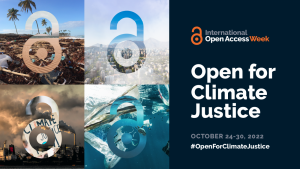


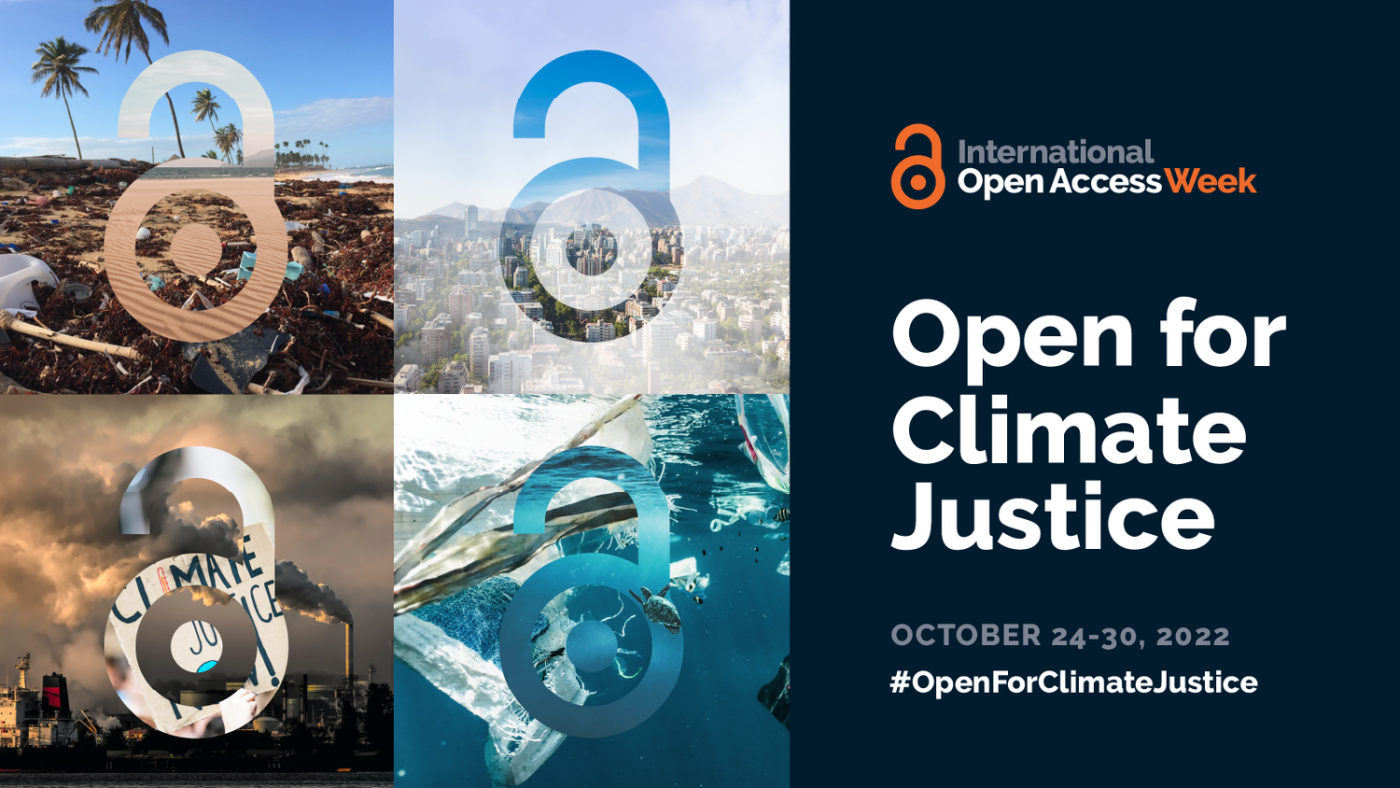
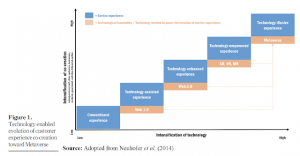
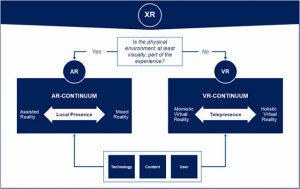
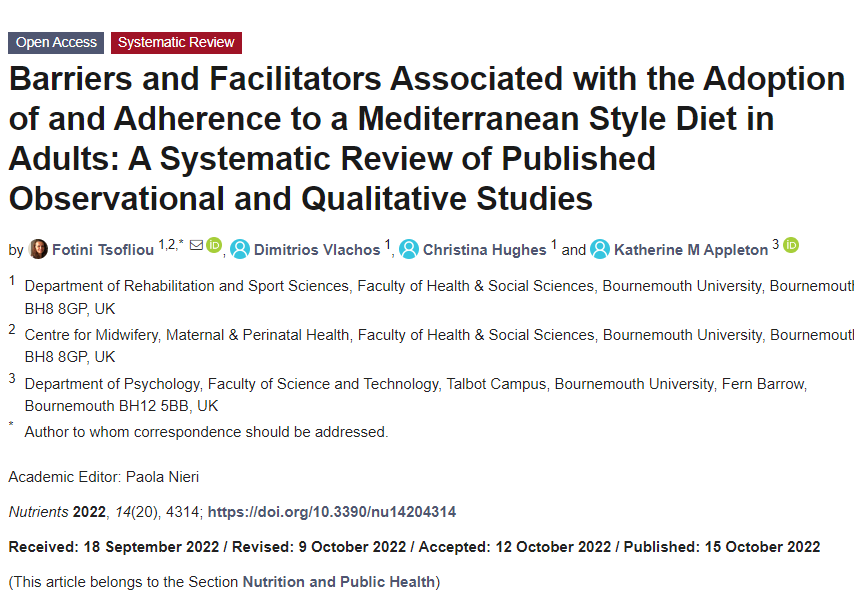

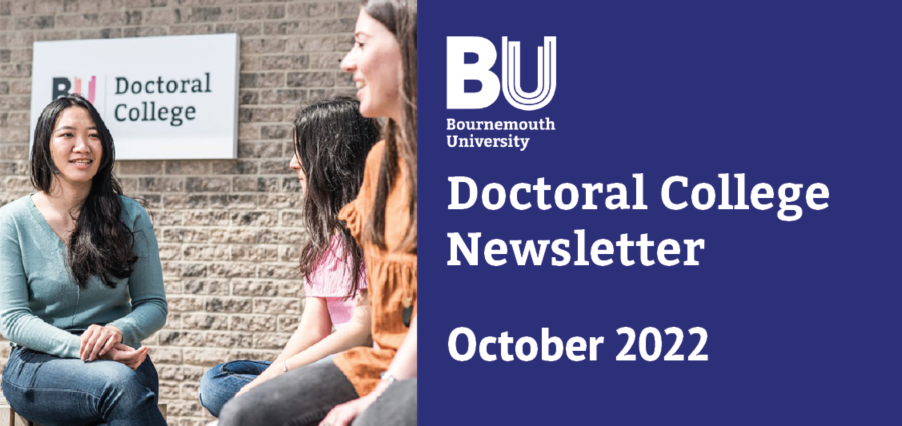

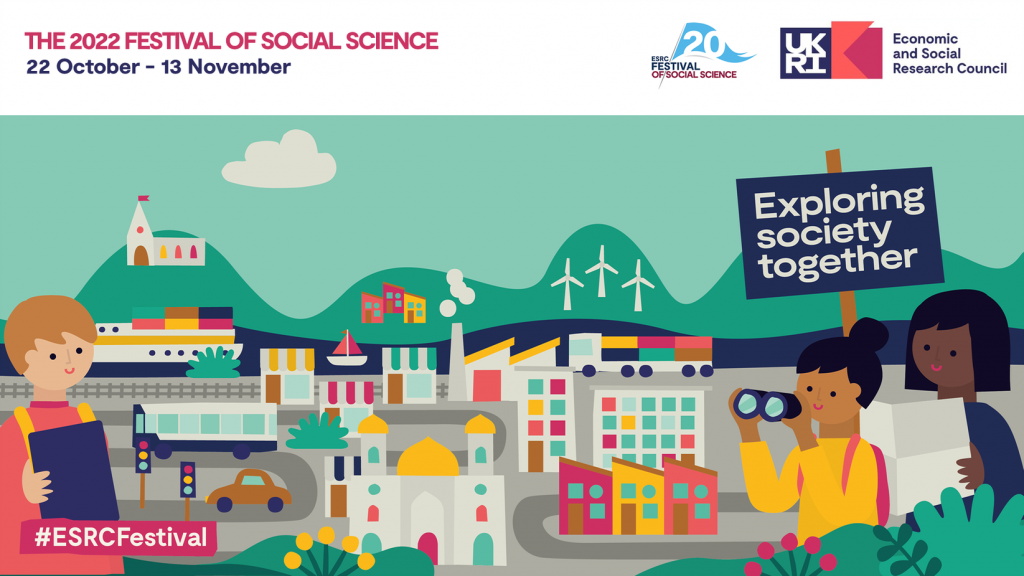






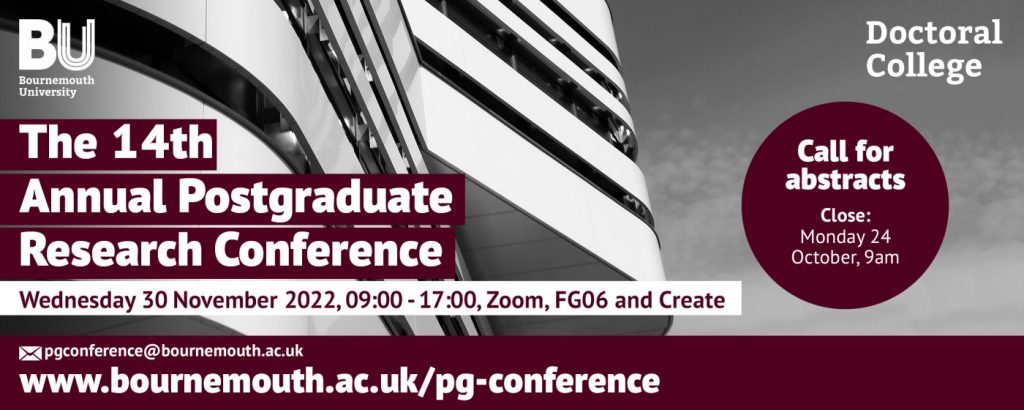











 Expand Your Impact: Collaboration and Networking Workshops for Researchers
Expand Your Impact: Collaboration and Networking Workshops for Researchers Visiting Prof. Sujan Marahatta presenting at BU
Visiting Prof. Sujan Marahatta presenting at BU 3C Event: Research Culture, Community & Can you Guess Who? Thursday 26 March 1-2pm
3C Event: Research Culture, Community & Can you Guess Who? Thursday 26 March 1-2pm UKCGE Recognised Research Supervision Programme: Deadline Approaching
UKCGE Recognised Research Supervision Programme: Deadline Approaching ECR Funding Open Call: Research Culture & Community Grant – Apply now
ECR Funding Open Call: Research Culture & Community Grant – Apply now ECR Funding Open Call: Research Culture & Community Grant – Application Deadline Friday 12 December
ECR Funding Open Call: Research Culture & Community Grant – Application Deadline Friday 12 December MSCA Postdoctoral Fellowships 2025 Call
MSCA Postdoctoral Fellowships 2025 Call ERC Advanced Grant 2025 Webinar
ERC Advanced Grant 2025 Webinar Update on UKRO services
Update on UKRO services European research project exploring use of ‘virtual twins’ to better manage metabolic associated fatty liver disease
European research project exploring use of ‘virtual twins’ to better manage metabolic associated fatty liver disease